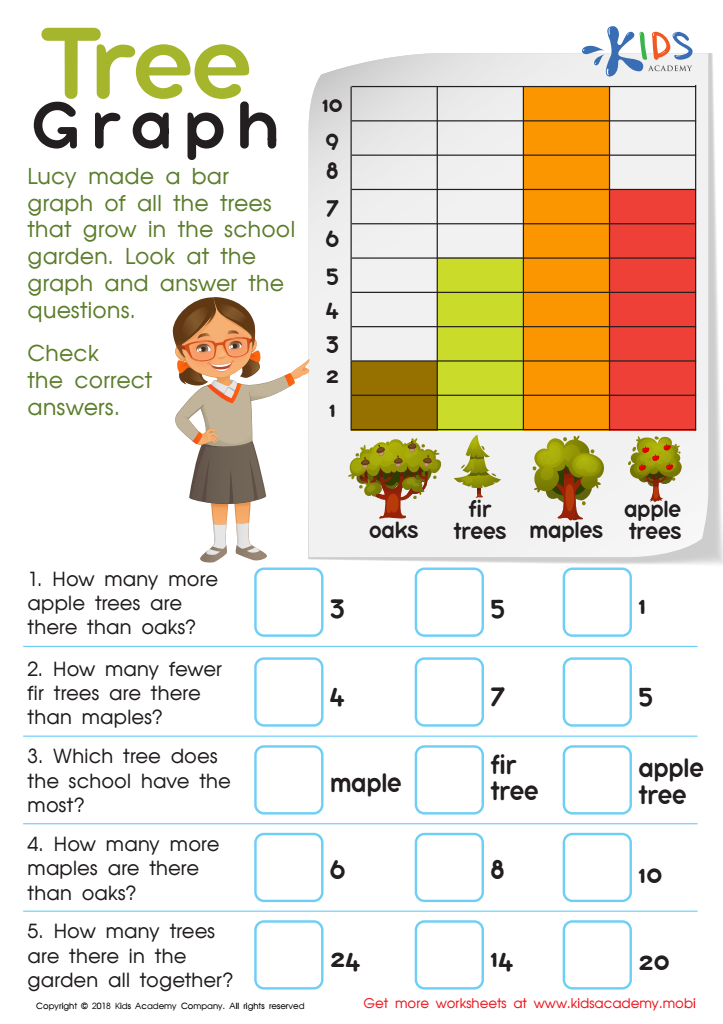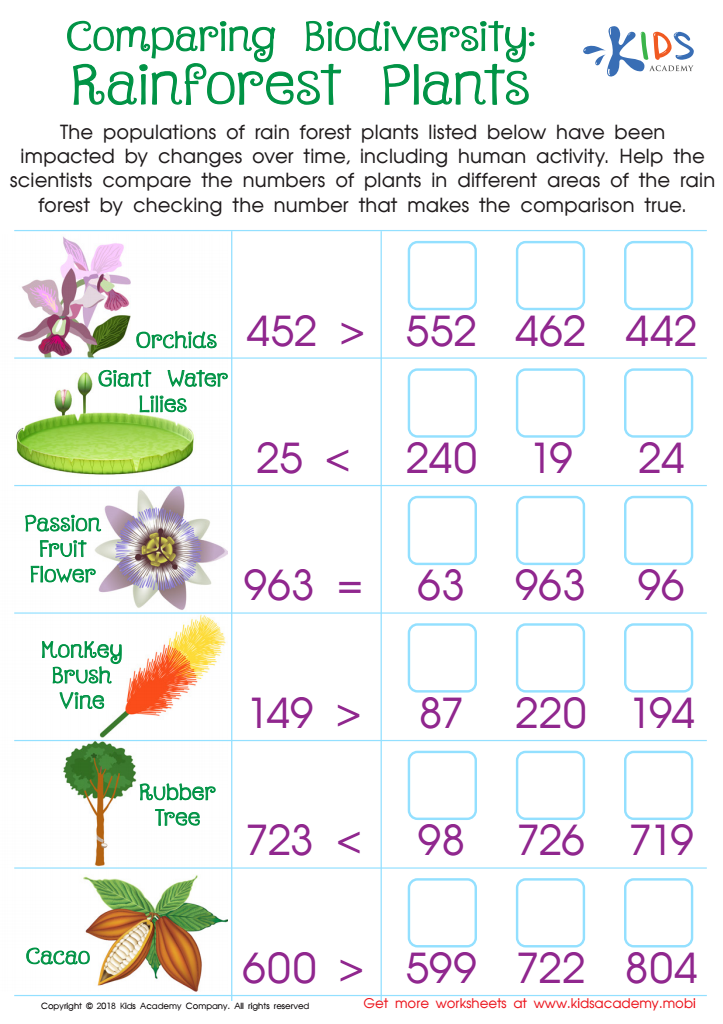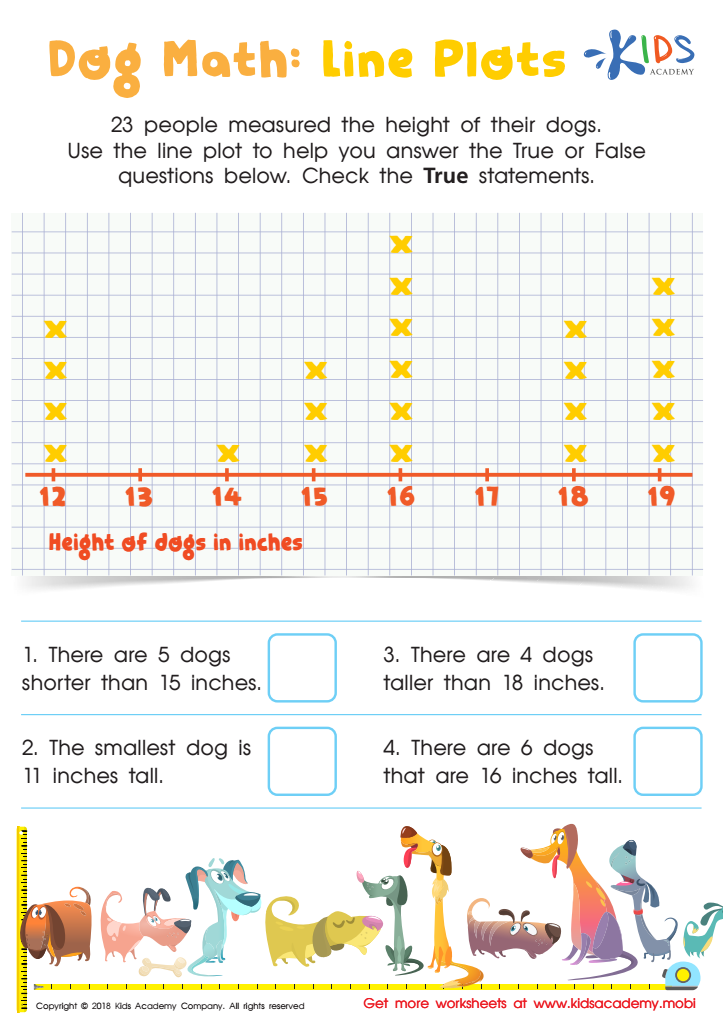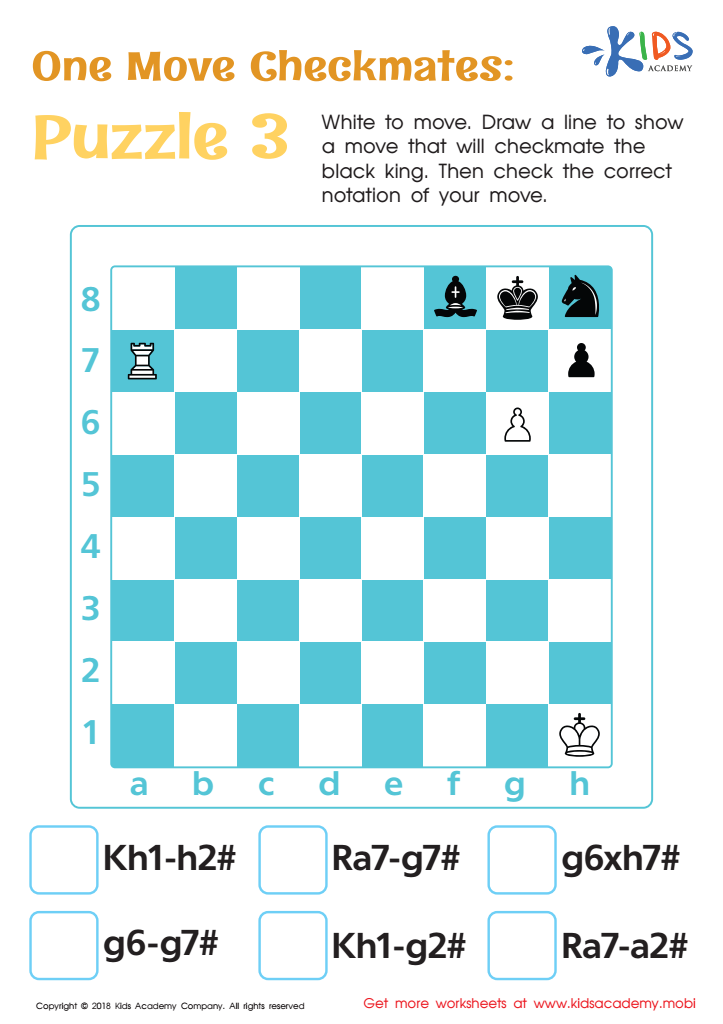Analytical skills development Worksheets for Ages 6-7
4 filtered results
-
From - To
Enhance your child's critical thinking with our Analytical Skills Development Worksheets for Ages 6-7. Designed to sharpen problem-solving abilities, these fun and engaging activities challenge young minds in areas such as pattern recognition, logical reasoning, and categorization. Our expertly crafted worksheets not only improve analytical skills but also foster a love for learning by making complex concepts accessible and enjoyable. Ideal for both classroom use and home study, these printables ensure comprehensive cognitive growth, setting a strong foundation for future academic success. Help your child excel with Kids Academy's trusted educational resources today!


Tree Graph Worksheet


Comparing Biodiversity: Rainforest Plants Worksheet


Dog Math: Line Plots Worksheet


One Move Checkmates: Puzzle 3 Worksheet
Parents and teachers should prioritize analytical skills development for children aged 6-7 because these skills fundamentally shape their ability to understand, process, and respond to information effectively. At this early age, children's brains are highly adaptable, making it an optimal time to introduce and nurture analytical thinking. By developing these skills, children learn to differentiate between facts and opinions, solve problems, and approach tasks methodically.
For example, when a child learns to sort objects by color or size, they are practicing categorization—a basic analytical skill. These foundational experiences prepare them for more complex problem-solving and critical thinking scenarios later in their education and lives. Additionally, children with strong analytical abilities tend to excel in subjects like math, science, and reading comprehension because they can recognize patterns, make connections, and infer conclusions more effectively.
Beyond academics, analytical skills foster resilience and adaptability. Children learn to evaluate various outcomes and make informed decisions, crucial for personal and social development. Interacting with their environment analytically helps them become more curious, engaged, and motivated learners. For these reasons, focusing on analytical skills is essential for setting up children not just for immediate educational success but for lifelong learning and adaptability.
 Assign to My Students
Assign to My Students
















